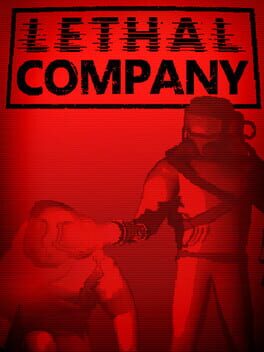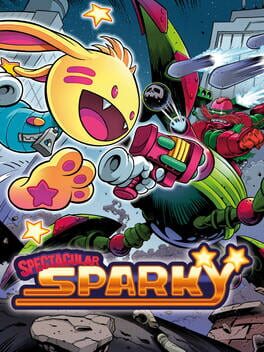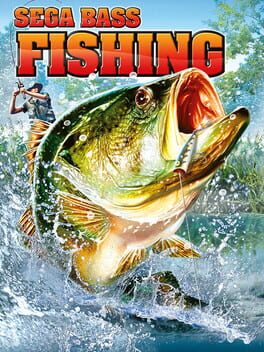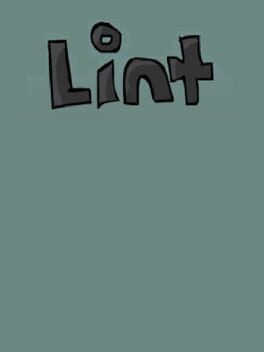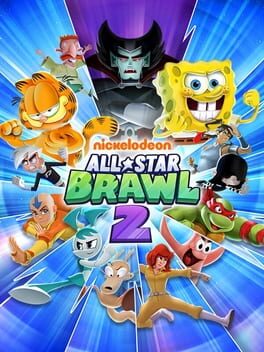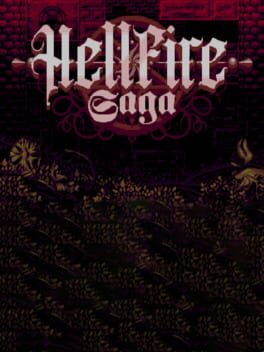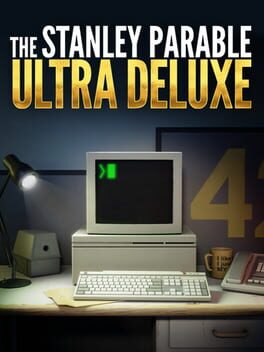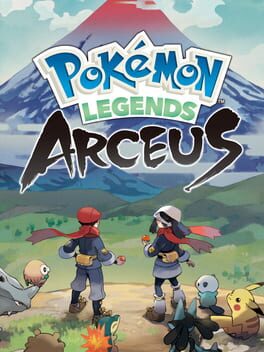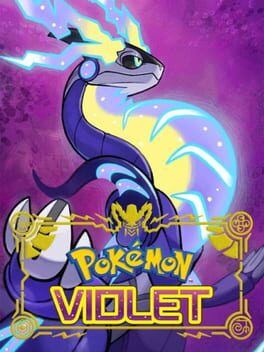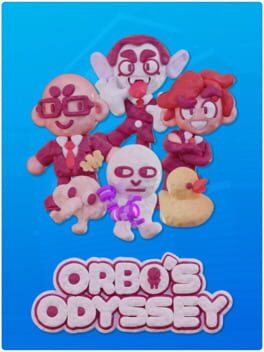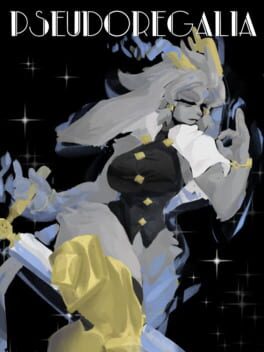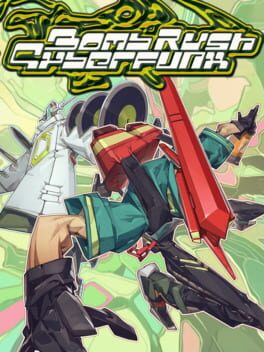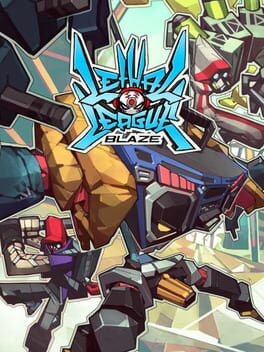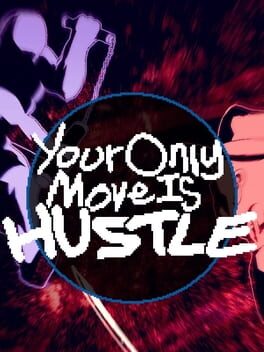XtremerSadiq
2023
As someone who's very averse to horror games (sic: pussy), I don't really seek too many out of my own volition. This one caught my eye, however. It being multiplayer eases alot of the initial tensions I have, as well as the heavy teamwork aspect. I actually really like the gameplay loop as well: Get inside, get as much as you can, get the fuck out before anything tries to kill you. There's so many different enemy types and locations to keep you on your toes, with more presumably to come. Definitely a really fun one to play with friends.
When you go into a piece of media that's regarded as a masterpiece, influential, and the greatest of all time, it sets a very high expectation for your experience. Of course, I try to go into anything with an open mind despite preconceived notions or reputation. When I started Ocarina of Time, I could definitely understand why a lot of people enjoyed this game, but going deeper into it my feelings started to shift. I’m going to go into this assuming people are already familiar with the larger content but I can’t imagine people reading this are worried about spoilers.
I'll start by talking about the gameplay. Regarding controls, I don't enjoy how Link moves. I think his movement speed and sword swinging are slow, JUST slow enough to where it's noticeable and an issue traversing terrain and fighting enemies. The combat isn't super great, and while I understand Z-targeting was a novel concept, it's strange how a lot of enemies travel in groups thus rendering single enemy lock-on somewhat null. The Hyrule Field is WAY too large for its own good, and it takes so long to get from one point to another. Getting the horse Epona somewhat alleviates this issue but A: You have to go out of your way to get her involving some back and forth time shenanigans and B: You get her fairly late into the actual game, at that point it feels like it doesn't even matter and you might as well just deal the way you've been dealing. I don't even like how Epona controls either, and you can only use her on the Field and Gerudo Valley making it seem even less necessary to get her. The weapons you get are mostly enjoyable, with the hookshot being my favorite one, but bear with me as I go into one of the most major problems: the camera.
First thing's first: I KNOW it's one of the first 3D action games of its time, the camera isn't going to be perfect. The fact of the matter stands though, the camera is absolutely terrible and makes the game even more frustrating as-is. Visualizing the N64 controller, you control Link with the joystick, your C-buttons are tied to your items, and with the Z button you can go into camera mode or if you're near an object/enemy you go into Z-targeting. What does the D-pad do, you might ask? ABSOLUTELY FUCKING NOTHING. So why didn't they apply some sort of camera based actions to the D-pad? Or better yet, apply the items to the D-pad and the camera to the C-buttons like Super Mario 64, which came out BEFORE this game.And yes, Mario 64’s also isn’t great, but I’ll take that over this one any day. Aiming is absolutely terrible with an N64’s analog controller (which, fun fact, isn’t truly analog, they’re digital) and I find myself having to fiddle around just to get a good place to shoot a Hookshot. Also, here’s a major question: If the hookshot is able to have a red dot reticle letting you know where to properly shoot your shot, why doesn’t the Bow and Arrow or the Boomerang have that? I don’t think there’s any excuse to not have a reticle in a game with anything you need to aim.
I had to make this its own section because it’s another issue to me: I don’t enjoy the bosses. Fundamentally, I understand that they’re supposed to be a culmination of what you’ve learned in the dungeon, but I don’t think they do a great job at that. That, and they’re often more frustrating than engaging to me. The enemies I enjoyed fighting the most are Dark Link and the Iron Knuckle, especially the Iron Knuckle. The WORST boss, however, has to be Bongo Bongo. It coincides with both my camera and combat issues. They decided the best thing to do in a game where you can’t aim the camera upwards is to make a boss suspended in the air while it slams down on a platform that bounces you. You need to use the Lens of Truth to see it which runs on magic, and you don’t want your magic to run out. You have to move fast enough to hit both of his hands, then use the lens of truth to see him, and hit him in his eye before he charges forward at you and you miss your opportunity to hit him and repeat the whole process. That tedious and irritating attack cycle combined with the slowness of Link’s movement encapsulates my problems with the game.
I just mentioned it for the boss, but yes there is a magic system tied to a meter. It does cool things like let you do a big charged swing attack, and other cool spells. What ISN’T cool is you can’t use two magical items at the same time, so you can’t do Din’s Fire while you’re using the Lens of Truth. Also, magic is not easy to come by in the grass like hearts or rupees (especially rupees but I’ll get to that later). If there’s an instance like, say, the face off against Ganondorf where you need to use charged swings and light arrows that use magic, you’re kind of fucked if you run out of it. A better system would be gaining magic every time you physically attack an enemy, so you don’t get put in a position where you just never have any and can’t get any without restarting.
The temples and dungeons themselves are honestly kind of whatever, some of them are cool like the Forest Temple and the Deku Tree, but I don’t enjoy a lot of the puzzles. I feel like I don’t have to write a paragraph on why the Water Temple sucks, but I can agree it is as bad as everyone says it is. Honestly though, every temple has the back-and-forth meandery that I don’t enjoy. Unlocking different parts of the map as you progress is fine, but why does the minimap have a location marker and the pause screen doesn’t? That would make alot of the areas less confusing to navigate.
Here’s something I don’t think anyone really mentions about this game though, how useless rupees truly are. First of all, the cap is super small by default at 99. Sure, you can get bigger wallet upgrades later, but what’s the point? Everything you can get with rupees is something you can get on the field other than a Deku Shield. You’ll find yourself hitting the rupee cap insanely quickly, but searching for anything else in grass and pots like hearts, arrows and magic, you’ll just get more rupees that you can’t even collect. Why didn’t they make it so you get other items instead of rupees if you’ve reached your rupee cap? I don’t even see the purpose of there being a cap anyway.
I think that’s enough about the gameplay, so let’s go into the story. I think it’s actually pretty good. It’s honestly nothing too crazy, it’s your typical chosen one story. Though, they do some interesting things with it. I like the aspect of Link having to travel through time, and Ganondorf having already somewhat taken over the world in Link’s absence. I think seeing the villages and people you met as a child and how much they’ve changed after Ganondorf changed everything is really cool as well. There’s lot of really good cinematic moments like the setup for the bosses, the Deku Tree dying, and meeting Ganondorf for the first time formally. I think Ganondorf is probably my favorite character in this whole game, he’s a great villain that does a good job of being intimidating and setting the stakes, he had a good and well executed plan and he’s got a pretty sick design. Talking about Link as a character is a little difficult in that same regard, though. Yes, I’m aware he’s called “Link” because he’s meant to be just that, a link to the player. Someone to project onto and experience the adventure vicariously through. I don’t mind that inherently, but I guess I’d prefer an actual character to get attached to instead. That being said, the game is less about Link as a character and more how what he does affects everyone for the better. Zelda as a character I don’t have any real opinion on, but she did her thing at the end of the game. Sheik is a character I enjoy thematically and based off of vibes and design, but it’s kind of screwed up how he doesn’t really…do anything? Like he just shows up, teaches Link a song, spouts some expositions and then leaves. It’s kind of funny being introduced to the character through Smash Bros and how cool he is in that, and seeing how downplayed he is in his game of origin. I can’t really say too much about other characters other than “they’re cool” because I don’t think any of them left that much of an impression on me. I kind of wish Link had more personality so the relationships could be explored in a more fun way. One character I do want to speak on though, Is Navi. Now look, I like alot of characters people would consider “annoying.” I like Omochao and I like Paimon, characters who are meant to be helpers but people find naggy. So with Navi being the posterchild of such characters I thought people over exaggerated how annoying she is. Unfortunately, I have to agree with those people. She’s annoying. It’s not even the fact that she’s a helper, it’s the fact that she’s very SELDOM helpful. She stops you dead in your tracks to tell you shit you already know, and on the off chance you actually ask her for help like on a boss, she’ll say something like “I don’t know its weakness!” What the hell is she useful for then? I’d like her a whole lot better if when I don’t know what to do next I could just talk to her and she’d say, “Let’s go to this village!” or “We need to talk to so-and-so!” Instead she’s just an unnecessary irritant.
Despite the N64’s low poly crust, the visuals of the game are great, mostly because of the strong art direction. The character and enemy designs are iconic, the locations have amazing atmospheres from serene to macabre, and the music? You’ve got some all-time classics here like the Forest Temple, Gerudo Valley, Lost Woods, The Main Theme, and the list goes on. There’s no doubt this game introduced people to what an ocarina even was, and it gave the best example of its sound.
So how do I feel overall? While the game is insanely frustrating, it also has a lot of fun moments. For every moment I wanted to tear my hair out, I still wanted to get to the end. It’s definitely a game that shows its age, and games you play now will not have the same problems. That’s the thing though, I still respect this game because it DID inspire a lot of the games we have now. I don’t think it’s a stretch at all to say we wouldn’t have stuff like Dark Souls, Kingdom Hearts, Hollow Knight, Skyrim, and countless others without Ocarina of Time. Of course, just because I respect it and what it did doesn’t mean I have to like everything about it, and there’s ALOT to dislike about it. It’s hard for me to really recommend because again, there’s way less frustrating games you can play with a similar style, but I didn’t regret playing Ocarina of Time at all. I’ve heard people say the 3DS remake alleviates a lot of the issues I’ve said, so maybe play that one. I do believe this is a game everyone should play at least once, so you can form your own opinion about it. One thing I do believe though: Without having played it yet, Majora’s Mask gotta be better.
I'll start by talking about the gameplay. Regarding controls, I don't enjoy how Link moves. I think his movement speed and sword swinging are slow, JUST slow enough to where it's noticeable and an issue traversing terrain and fighting enemies. The combat isn't super great, and while I understand Z-targeting was a novel concept, it's strange how a lot of enemies travel in groups thus rendering single enemy lock-on somewhat null. The Hyrule Field is WAY too large for its own good, and it takes so long to get from one point to another. Getting the horse Epona somewhat alleviates this issue but A: You have to go out of your way to get her involving some back and forth time shenanigans and B: You get her fairly late into the actual game, at that point it feels like it doesn't even matter and you might as well just deal the way you've been dealing. I don't even like how Epona controls either, and you can only use her on the Field and Gerudo Valley making it seem even less necessary to get her. The weapons you get are mostly enjoyable, with the hookshot being my favorite one, but bear with me as I go into one of the most major problems: the camera.
First thing's first: I KNOW it's one of the first 3D action games of its time, the camera isn't going to be perfect. The fact of the matter stands though, the camera is absolutely terrible and makes the game even more frustrating as-is. Visualizing the N64 controller, you control Link with the joystick, your C-buttons are tied to your items, and with the Z button you can go into camera mode or if you're near an object/enemy you go into Z-targeting. What does the D-pad do, you might ask? ABSOLUTELY FUCKING NOTHING. So why didn't they apply some sort of camera based actions to the D-pad? Or better yet, apply the items to the D-pad and the camera to the C-buttons like Super Mario 64, which came out BEFORE this game.And yes, Mario 64’s also isn’t great, but I’ll take that over this one any day. Aiming is absolutely terrible with an N64’s analog controller (which, fun fact, isn’t truly analog, they’re digital) and I find myself having to fiddle around just to get a good place to shoot a Hookshot. Also, here’s a major question: If the hookshot is able to have a red dot reticle letting you know where to properly shoot your shot, why doesn’t the Bow and Arrow or the Boomerang have that? I don’t think there’s any excuse to not have a reticle in a game with anything you need to aim.
I had to make this its own section because it’s another issue to me: I don’t enjoy the bosses. Fundamentally, I understand that they’re supposed to be a culmination of what you’ve learned in the dungeon, but I don’t think they do a great job at that. That, and they’re often more frustrating than engaging to me. The enemies I enjoyed fighting the most are Dark Link and the Iron Knuckle, especially the Iron Knuckle. The WORST boss, however, has to be Bongo Bongo. It coincides with both my camera and combat issues. They decided the best thing to do in a game where you can’t aim the camera upwards is to make a boss suspended in the air while it slams down on a platform that bounces you. You need to use the Lens of Truth to see it which runs on magic, and you don’t want your magic to run out. You have to move fast enough to hit both of his hands, then use the lens of truth to see him, and hit him in his eye before he charges forward at you and you miss your opportunity to hit him and repeat the whole process. That tedious and irritating attack cycle combined with the slowness of Link’s movement encapsulates my problems with the game.
I just mentioned it for the boss, but yes there is a magic system tied to a meter. It does cool things like let you do a big charged swing attack, and other cool spells. What ISN’T cool is you can’t use two magical items at the same time, so you can’t do Din’s Fire while you’re using the Lens of Truth. Also, magic is not easy to come by in the grass like hearts or rupees (especially rupees but I’ll get to that later). If there’s an instance like, say, the face off against Ganondorf where you need to use charged swings and light arrows that use magic, you’re kind of fucked if you run out of it. A better system would be gaining magic every time you physically attack an enemy, so you don’t get put in a position where you just never have any and can’t get any without restarting.
The temples and dungeons themselves are honestly kind of whatever, some of them are cool like the Forest Temple and the Deku Tree, but I don’t enjoy a lot of the puzzles. I feel like I don’t have to write a paragraph on why the Water Temple sucks, but I can agree it is as bad as everyone says it is. Honestly though, every temple has the back-and-forth meandery that I don’t enjoy. Unlocking different parts of the map as you progress is fine, but why does the minimap have a location marker and the pause screen doesn’t? That would make alot of the areas less confusing to navigate.
Here’s something I don’t think anyone really mentions about this game though, how useless rupees truly are. First of all, the cap is super small by default at 99. Sure, you can get bigger wallet upgrades later, but what’s the point? Everything you can get with rupees is something you can get on the field other than a Deku Shield. You’ll find yourself hitting the rupee cap insanely quickly, but searching for anything else in grass and pots like hearts, arrows and magic, you’ll just get more rupees that you can’t even collect. Why didn’t they make it so you get other items instead of rupees if you’ve reached your rupee cap? I don’t even see the purpose of there being a cap anyway.
I think that’s enough about the gameplay, so let’s go into the story. I think it’s actually pretty good. It’s honestly nothing too crazy, it’s your typical chosen one story. Though, they do some interesting things with it. I like the aspect of Link having to travel through time, and Ganondorf having already somewhat taken over the world in Link’s absence. I think seeing the villages and people you met as a child and how much they’ve changed after Ganondorf changed everything is really cool as well. There’s lot of really good cinematic moments like the setup for the bosses, the Deku Tree dying, and meeting Ganondorf for the first time formally. I think Ganondorf is probably my favorite character in this whole game, he’s a great villain that does a good job of being intimidating and setting the stakes, he had a good and well executed plan and he’s got a pretty sick design. Talking about Link as a character is a little difficult in that same regard, though. Yes, I’m aware he’s called “Link” because he’s meant to be just that, a link to the player. Someone to project onto and experience the adventure vicariously through. I don’t mind that inherently, but I guess I’d prefer an actual character to get attached to instead. That being said, the game is less about Link as a character and more how what he does affects everyone for the better. Zelda as a character I don’t have any real opinion on, but she did her thing at the end of the game. Sheik is a character I enjoy thematically and based off of vibes and design, but it’s kind of screwed up how he doesn’t really…do anything? Like he just shows up, teaches Link a song, spouts some expositions and then leaves. It’s kind of funny being introduced to the character through Smash Bros and how cool he is in that, and seeing how downplayed he is in his game of origin. I can’t really say too much about other characters other than “they’re cool” because I don’t think any of them left that much of an impression on me. I kind of wish Link had more personality so the relationships could be explored in a more fun way. One character I do want to speak on though, Is Navi. Now look, I like alot of characters people would consider “annoying.” I like Omochao and I like Paimon, characters who are meant to be helpers but people find naggy. So with Navi being the posterchild of such characters I thought people over exaggerated how annoying she is. Unfortunately, I have to agree with those people. She’s annoying. It’s not even the fact that she’s a helper, it’s the fact that she’s very SELDOM helpful. She stops you dead in your tracks to tell you shit you already know, and on the off chance you actually ask her for help like on a boss, she’ll say something like “I don’t know its weakness!” What the hell is she useful for then? I’d like her a whole lot better if when I don’t know what to do next I could just talk to her and she’d say, “Let’s go to this village!” or “We need to talk to so-and-so!” Instead she’s just an unnecessary irritant.
Despite the N64’s low poly crust, the visuals of the game are great, mostly because of the strong art direction. The character and enemy designs are iconic, the locations have amazing atmospheres from serene to macabre, and the music? You’ve got some all-time classics here like the Forest Temple, Gerudo Valley, Lost Woods, The Main Theme, and the list goes on. There’s no doubt this game introduced people to what an ocarina even was, and it gave the best example of its sound.
So how do I feel overall? While the game is insanely frustrating, it also has a lot of fun moments. For every moment I wanted to tear my hair out, I still wanted to get to the end. It’s definitely a game that shows its age, and games you play now will not have the same problems. That’s the thing though, I still respect this game because it DID inspire a lot of the games we have now. I don’t think it’s a stretch at all to say we wouldn’t have stuff like Dark Souls, Kingdom Hearts, Hollow Knight, Skyrim, and countless others without Ocarina of Time. Of course, just because I respect it and what it did doesn’t mean I have to like everything about it, and there’s ALOT to dislike about it. It’s hard for me to really recommend because again, there’s way less frustrating games you can play with a similar style, but I didn’t regret playing Ocarina of Time at all. I’ve heard people say the 3DS remake alleviates a lot of the issues I’ve said, so maybe play that one. I do believe this is a game everyone should play at least once, so you can form your own opinion about it. One thing I do believe though: Without having played it yet, Majora’s Mask gotta be better.
2021
The influence from games like Gunstar Heroes, Alien Soldier and other Treasure games is clearly present and admirable, but it lacks a lot of what makes those games fun and interesting from both a gameplay and thematic level. In terms of gameplay, it's just your standard run-n-gun. I heavily dislike the Heat mechanic as I don't feel it really adds anything but frustration. How is holding the button down any different than mashing it? The stamina bar makes more sense with limiting your dashes, but I don't believe they needed to be linked to multiple jumps as well. The level design ranges from decent to atrocious. The screen will be littered with enemies and projectiles with no real means of dodging any of it, and more often than not amidst bottomless pits. The bosses aren't anything to write home about, as most of them are homages to other Treasure bosses but, again, nowhere near as fun. There are sporadic vehicular segments that, may seem fun and interesting at first, but quickly dive into another annoyance once you realize they limit your movement in ways to make it harder to defend yourself by rendeding any option built upon stamina completely useless. It's hard to tell what's more frustrating though, the gameplay or the writing. Even though some of the better Genesis games opt for pure visual storytelling, Spectacular Sparky decides to switch things up by including incredibly cringeworthy dialogue that wouldn't feel out of place from the "Epic Bacon" era of the mid 2010s internet. Not only is the dialogue unfunny, not only is it heavily frequent, breaking up the flow of bosses, the game is fully voice acted, and the vocal direction isn't doing the writing any favors. Visually it's decent, the main character has a charming design as do some others, and the backgrounds are impressive. The soundtrack is also very good, and does a great job at capturing the upbeat energy of a Genesis game.
Other than that, I unfortunately don't have a lot of great things to say about Spectacular Sparky. It took me around 4 hours and if it wasn't gifted to be I definitely would have refunded it. Anything you're interested in here you can get out of a Treasure game, Metal Slug, Cuphead, etc., and I can't reccomend those games over this one enough.
Other than that, I unfortunately don't have a lot of great things to say about Spectacular Sparky. It took me around 4 hours and if it wasn't gifted to be I definitely would have refunded it. Anything you're interested in here you can get out of a Treasure game, Metal Slug, Cuphead, etc., and I can't reccomend those games over this one enough.
1997
2009
I really liked the first Nickelodeon All-Star Brawl game. It was fast and frantic and had interesting mechanics, especially for a platform fighter. I'm incredibly happy to report that Nickelodeon All-Star Brawl 2 is so much better than this game, it actually makes me realize a lot of its shortcomings.
NASB2's roster cuts may be disappointing, I personally was sad to see CatDog, Oblina and Helga go, but it makes up for it by having each character play so much more uniquely than the first game. This isn't just the same game with updated graphics and new characters, no, they completely remade the physics from the ground up. Even the veterans feel different with new mechanics like, Garfield's Sugar Rush and Reptar's fireball meter. I was a bit weary on the additions of side specials and back airs, initially preferring the Smash 64 simplicity of the first NASB, but they really do add a lot more to the hypeness of the combat and better ways to approach the opponent. Speaking of hypeness, the Slime Mechanic is the most insane thing this game adds. Not only can you cancel attacks into other ones at the cost of meter, but you can also Burst ala Guilty Gear, and power up your special moves to have better effects. Of course, if that sounds too complex, you could also do what I do, and hold off on using those in favor of a crazy super move. It can be blocked and rolled out of, unlike Smash, so being able to land these properly gets me excited every single time.
The visuals are so much better this time around, the environments and lighting are colorful, and the characters are way more expressive and are animated to represent their shows and personalities in more fitting ways, such as Danny Phantom's features being flattened out, or Ren and Stimpy's model morphing and contorting to their psychotic expressions. The music goes harder than it honestly has any right to as well, but after the team from the first game couldnt get the right sound that they wanted, it feels like this soundtrack is an overcorrection in the best way possible.
There's actually a story mode here too, a rougelike campaign complete with voice acting that makes Smash's World of Light pale in comparison. Actually, I should stop comparing this to Smash so much. Even though I have had more fun with this in a few days than years of playing Ultimate, I want there to be more room for platform fighters that don't get compared to Smash every opportunity. Of course, If we get more games like this where the devs prioritize fun and creativity, that reality could be well within reach.
Oh yeah, and fuck Multiversus. Just wanted to throw that out there.
NASB2's roster cuts may be disappointing, I personally was sad to see CatDog, Oblina and Helga go, but it makes up for it by having each character play so much more uniquely than the first game. This isn't just the same game with updated graphics and new characters, no, they completely remade the physics from the ground up. Even the veterans feel different with new mechanics like, Garfield's Sugar Rush and Reptar's fireball meter. I was a bit weary on the additions of side specials and back airs, initially preferring the Smash 64 simplicity of the first NASB, but they really do add a lot more to the hypeness of the combat and better ways to approach the opponent. Speaking of hypeness, the Slime Mechanic is the most insane thing this game adds. Not only can you cancel attacks into other ones at the cost of meter, but you can also Burst ala Guilty Gear, and power up your special moves to have better effects. Of course, if that sounds too complex, you could also do what I do, and hold off on using those in favor of a crazy super move. It can be blocked and rolled out of, unlike Smash, so being able to land these properly gets me excited every single time.
The visuals are so much better this time around, the environments and lighting are colorful, and the characters are way more expressive and are animated to represent their shows and personalities in more fitting ways, such as Danny Phantom's features being flattened out, or Ren and Stimpy's model morphing and contorting to their psychotic expressions. The music goes harder than it honestly has any right to as well, but after the team from the first game couldnt get the right sound that they wanted, it feels like this soundtrack is an overcorrection in the best way possible.
There's actually a story mode here too, a rougelike campaign complete with voice acting that makes Smash's World of Light pale in comparison. Actually, I should stop comparing this to Smash so much. Even though I have had more fun with this in a few days than years of playing Ultimate, I want there to be more room for platform fighters that don't get compared to Smash every opportunity. Of course, If we get more games like this where the devs prioritize fun and creativity, that reality could be well within reach.
Oh yeah, and fuck Multiversus. Just wanted to throw that out there.
2023
It's rare we get a Sonic hack that actually manages to get finished, and with 5 years of development, Hellfire Saga definitely delivers. The visuals are definitely stand out in this hack. Obviously the characters clash but it creates a fitting sort of dissonance to me, as Sonic isn't supposed to belong here. I love the level aesthetics, particularly Sin City. The bosses are cool and creative, even though I call BS on how to defeat some of them. In particular, the Final Boss is a bit of a letdown, I found it to drag and the gimmick for it wasn't very fun. Despite that, I say Hellfire Saga is a pretty fun hack for those looking for a challenge.
This review contains spoilers
I believe that video games are among the most interesting ways to tell a story, because of the inherent interactive nature it has over other forms of media. When you watch a tv show or a movie, everything is laid out for you. All you have to do is sit down and watch it. When you read a book, of course you have to turn the pages to see what happens next, simulating some form of interactivity, but with a video game there are so many different factors that come into play. Multiple genres beget multiple control styles which beget levels of difficulty which beget levels of accessibility which beget a divide between players who experience media in a way unique from one another. It's very much a double-edged sword. People who play video games have their preferences and things they're willing to put up with to experience a feeling you normally wouldn't get just by watching, reading or listening. With all that being said, what does that have to do with The Stanley Parable? Well, because this game seeks to deconstruct the very point of video games, for better or for worse.
From the moment you start, you're greeted with a British Narrator who begins to tell you a story about a man named Stanley, who, caught up in the euphoria of his mundane life, notices all of his coworkers have suddenly disappeared in his office, leaving him alone to explore the building. From there, you control Stanley as the Narrator does exactly that, narrate your actions. Truth be told, that's the extent of the entire premise. Every single thing revolves around you, the Narrator and Stanley. The narrator tells Stanley what to do and you can choose to do it or you can choose not to, and you go on trip after trip exploring the full extent of your decisions. Are you, the player, named Stanley, akin to a placeholder RPG name, or is our protagonist named Stanley, and we're to guide him on his journey? It's somehow both and neither at the same time. The Narrator will ad-lib and break the fourth wall should you choose to stray from his path, and he will refer to Stanley and the player equal amounts of times. Stanley IS a character, and YOU the player are controlling him, so you both matter in this story. Though before we get into Stanley we should get into the driving force of this game, the Narrator.
The Narrator is the voice you will hear all throughout the game for basically every action you do, so get used to it. At any moment should you choose to stray from his path like your morbid curiosity and instinctive rebellion would have you, the Narrator will get annoyed, angry, sad, and more. His vocal performance is incredibly convincing, and the more time you spend with him, his voice will be burned into your mind as you hear him go through every single emotion. Personality wise, the Narrator is haughty, self-righteous, narcissistic, a control freak, and will constantly belittle you and Stanley at any given moment for not doing what he says. It would make sense to equate him as a sort of god, as he seems to have control over this world that you're in and seems to know what will happen before it happens. Although, as your journey progresses, you start to learn, maybe the Narrator doesn't have as much control as he may lead you to believe. Maybe he's keeping you here to make you think that he's your only hope at salvation, or maybe he's trapped here with you and is making stuff up as he goes along. There's many ways to speculate but ultimately it's whatever you choose to believe. Which brings me to another section of this rant: choice.
It's probably no surprise the game has multiple "endings", or more specifically moments where it will appear your journey comes to an end, only to put you right back at the beginning. Again, the Narrator will tell you where you're "supposed" to go, and during the moments you diverge, he will insult you and demand to be taken seriously. This is his story that he worked so hard on, and you're the star of it, so surely you have to do what he says to progress it! So you play his story the way he intends you to do it, and guess what? It sucks! It's the most boring, basic and uninteresting story you could make. Some boring guy who's complacent in his monotonous work schedule finds out all of his coworkers have vanished, and stumbles across a conspiracy that he's been working in a mind control facility, and then...he leaves. The End. This raises so many questions: Where did all the coworkers go? Who was controlling the facility? What is the true purpose of the mind control in the facility? What do they actually do in this office? Why was Stanley the only one who didn't leave? Is he the only one not under mind control? Why would he go through all the trouble of investigating what was going on if he was just going to leave? All of these questions and more are never answered. The Narrator is so hellbent on you doing what he wants and you get nothing out of it except for a really shitty game. Why IS this meant to be a game? It wasn't unique to control, it wasn't told in an interesting way, it wasn't very long, it wasn't visually very appealing, it was nothing. So when you inevitably get booted back to the beginning of the game after that incredibly lame story, what's the first thing you want to do? What YOU want to do. Not what the NARRATOR wants to do, because you experienced what he wants to do and it was shitty. It’s my strong belief that video games are supposed to be at least one of two things: fun or interesting. The Narrator's excuse for a game was not fun and it was not interesting. Guess what, though? This is MY game and if I'm in control, then I can do whatever I want to. Or so it would seem.
You know that meme "The Illusion of Free Choice"? The feeling that what you do doesn't really matter because everything is predetermined to come out one specific way? That’s a big part of this game. In too many endings, the Narrator will revel in the fact you made a dumb decision and dared to question his superiority in a futile attempt to prove that you control your own path. Killing yourself, trying to find glitches in the game, even standing in a broom closet, the Narrator will have something to say about it and tell you to get it together. The breaking point for me was when the Narrator tries to trick Stanley into believing he actually has a loving wife in his home, only to smugly reveal he exists as a pawn whose fate is to listen to what everyone tells him to do. What waits for Stanley listening to the Narrator, though? A repetitive fate reliving a boring story? I'm not going to let him do that, and I certainly won't have this guy being the one in control of any of our fates. Of course I want to prove him wrong, and piss him off any way I can just to make that point, even if I have to kill myself to do it (which happens to be the focus of one of my favorite, and one of the more sadder endings). Although again, the Narrator isn't in control 24/7. There are moments where even he gets confused and stumped as to what happens next, and even moments where he just says screw it and lets Stanley do what he wants to do. It's very clear the Narrator is projecting a lot of his insecurities onto Stanley. He will repeatedly tell Stanley things like “You need me”, and in some cases, it's true. Though multiple endings imply just how much the Narrator needs Stanley to give HIM a sense of purpose in this beige limbo they've stumbled into.
By this point, you realize this isn’t your average game with an objective to achieve, but rather a series of “games” strung together with a narrative. It represents the eternal purgatory between Stanley and the Narrator, two beings trapped with only each other, forced to relive the same collection of experiences and forgetting each one of them every time. That makes for a fine story, but how does it make for a GAME? This story justifies being a game BECAUSE it's interactive. You couldn't get this experience just watching it like a movie, even just watching gameplay of it wouldn't be YOUR experience, it'd be someone else's. A choose your own adventure book would be the most appropriate comparison, but even then, a book can't change its words when you stay on one page, or add new paragraphs when you read it backwards. A video game IS the only true way The Stanley Parable can properly explore the topics of choice, free will, and the nature of storytelling and gaming. Although, there is still a biting issue. Remember before I said games should either be fun or interesting? I still heavily believe that, and I believe The Stanley Parable is indeed interesting, but fun? That's harder to decide. Fun is subjective of course, as is interesting. Do I need a game to have insane weapon-based combat or high-speed platforming to be fun or interesting? Of course not (though I do favor it); But I'm not going to sit here and pretend like walking through doors in a beige office building while a British man talks down to you is super exhilarating. Visually, the game's continued reused assets and dull color scheme perfectly capture the mind-numbing monotony of the antics between Stanley and the Narrator. It works a little too well in that regard though, because eventually you'll get sick of having to go through the same doors each time just to possibly find something new. Maybe there’ll be a surprise location a few times, but of course afterwards, you’re sent back to the office. Music is only relegated to certain specific events, as you’ll mostly be traversing in silence (or as much silence as the Narrator will allow you to have through all of his diatribes). It’s a few levels shy of sensory deprivation. So why play it, then? Well, because it doesn’t ask much of you to play it. It doesn’t require you to learn attacks or how to use weapons. Hell, the game doesn't even require you to jump. It doesn’t require you to solve puzzles, or tame creatures, or maintain a kingdom, or compete against other players, or anything of that nature akin to other games. All the game asks of you is your time and willingness to play it. To some, that might just be asking a lot, as we value our time playing video games. The way I see it though, I didn’t lose anything playing this game (except maybe a couple of brain cells), and what I gained from playing was an interesting story. I’d like to believe that’s a fair tradeoff.
So you play the game. You get all the endings. You find all the funny Easter eggs. You exhaust the game of everything it has, all of its content. You start realizing you're getting the same endings again. Which ending is the true ending? IS there a true ending? There IS a moment where the credits will roll, ending on a well-written melancholy note that I do appreciate. Though of course, it’s followed up with Stanley, and you by proxy, being booted back to the beginning of the game. The game only truly ends when you stop playing. It might seem obvious or corny, but the fact is: So long as you let Stanley and the Narrator continue to live out these repeated events, it will never end for them. You as the player are the motivation for the plot. You want to see what will happen, but now you’ve seen all that’s happened. The game stops being fun once you learn all the surprises, it has no replay value because the gameplay itself is so uninteresting, and the events themselves are the fun part. That’s what this life is like for Stanley and the Narrator. They’ve lived through this countless times with no end in sight. The only way to end it is to free them, and yourself, from the monotony. Imprisonment in a continuous loop of deja vu, where the only true “freedom” is the freedom to make it stop by any means. That, to me, is the true ending of The Stanley Parable.
That is, until The Stanley Parable: Ultra Deluxe came out.
8 years after the release of the original Stanley Parable comes an expanded release of the game, The Stanley Parable: Ultra Deluxe. This boasts loads of new features and content, enough content to delay the new game’s release 3 years after its original proposed date. This game works as a continuation of sorts, as the Narrator and Stanley are experiencing this new content together, with the former being incredibly excited to see said new content. Though after an intensely disappointing reveal of a jump button limited to 36 uses in one contained circle, the Narrator decides to take matters into his own hands and create new content himself.
This deluxe edition is even MORE meta than the base game, as it refers not only to the game itself but everything surrounding it. It comments on the dangers of nostalgia, the inability to move on from the past, and even the nature of pandering to an audience vs artist integrity. Once again we delve into the Narrator’s intense insecurities, primarily in another one of my favorite endings centered around a new ”Skip” button feature, as it’s a commentary on losing yourself to criticism and sacrificing your own principles to please someone else. Yet, I feel like this time around there was a heavier focus on comedy, especially with the new “”character”” introduced. That’s not necessarily a bad thing, though, and I did find a lot of the new content funny. Ultra Deluxe isn’t as impactful as the original game, and it knows that. It isn’t trying to be. It’s simply delivering on the promise of more content, and that content is well worth it, with just as many routes and endings as the original game, if not more.
I honestly don’t know if I can recommend The Stanley Parable. Hell, if you’re reading this you’ve either already played it or don’t really care about spoilers. I went into the game after playing the demo back in 2013, forgetting about it and then being told to play it by a friend after the Ultra Deluxe came out in 2022. That’s pretty much going in blind, which is definitely the way you should experience the game. I don’t want to call it a “masterpiece” or “genius”, but I will not discredit it. It’s incredibly well thought out and well written, and it knows what it’s doing the entire time. It’s not for everyone though, and I can definitely understand how people would find it’s demeanor pretentious and be turned off by it. Do you want an interesting deconstruction about the nature of decision making and narrative storytelling, portrayed through the tragedy of two beings in an eternal stalemate? Do you want to play a game where a British man whines and berates you as you walk through empty office building rooms that mostly look the same? Those are the factors I take into account. If that sounds like a good time to you, then give it a play. If not, then don’t.
It’s your choice, after all.
From the moment you start, you're greeted with a British Narrator who begins to tell you a story about a man named Stanley, who, caught up in the euphoria of his mundane life, notices all of his coworkers have suddenly disappeared in his office, leaving him alone to explore the building. From there, you control Stanley as the Narrator does exactly that, narrate your actions. Truth be told, that's the extent of the entire premise. Every single thing revolves around you, the Narrator and Stanley. The narrator tells Stanley what to do and you can choose to do it or you can choose not to, and you go on trip after trip exploring the full extent of your decisions. Are you, the player, named Stanley, akin to a placeholder RPG name, or is our protagonist named Stanley, and we're to guide him on his journey? It's somehow both and neither at the same time. The Narrator will ad-lib and break the fourth wall should you choose to stray from his path, and he will refer to Stanley and the player equal amounts of times. Stanley IS a character, and YOU the player are controlling him, so you both matter in this story. Though before we get into Stanley we should get into the driving force of this game, the Narrator.
The Narrator is the voice you will hear all throughout the game for basically every action you do, so get used to it. At any moment should you choose to stray from his path like your morbid curiosity and instinctive rebellion would have you, the Narrator will get annoyed, angry, sad, and more. His vocal performance is incredibly convincing, and the more time you spend with him, his voice will be burned into your mind as you hear him go through every single emotion. Personality wise, the Narrator is haughty, self-righteous, narcissistic, a control freak, and will constantly belittle you and Stanley at any given moment for not doing what he says. It would make sense to equate him as a sort of god, as he seems to have control over this world that you're in and seems to know what will happen before it happens. Although, as your journey progresses, you start to learn, maybe the Narrator doesn't have as much control as he may lead you to believe. Maybe he's keeping you here to make you think that he's your only hope at salvation, or maybe he's trapped here with you and is making stuff up as he goes along. There's many ways to speculate but ultimately it's whatever you choose to believe. Which brings me to another section of this rant: choice.
It's probably no surprise the game has multiple "endings", or more specifically moments where it will appear your journey comes to an end, only to put you right back at the beginning. Again, the Narrator will tell you where you're "supposed" to go, and during the moments you diverge, he will insult you and demand to be taken seriously. This is his story that he worked so hard on, and you're the star of it, so surely you have to do what he says to progress it! So you play his story the way he intends you to do it, and guess what? It sucks! It's the most boring, basic and uninteresting story you could make. Some boring guy who's complacent in his monotonous work schedule finds out all of his coworkers have vanished, and stumbles across a conspiracy that he's been working in a mind control facility, and then...he leaves. The End. This raises so many questions: Where did all the coworkers go? Who was controlling the facility? What is the true purpose of the mind control in the facility? What do they actually do in this office? Why was Stanley the only one who didn't leave? Is he the only one not under mind control? Why would he go through all the trouble of investigating what was going on if he was just going to leave? All of these questions and more are never answered. The Narrator is so hellbent on you doing what he wants and you get nothing out of it except for a really shitty game. Why IS this meant to be a game? It wasn't unique to control, it wasn't told in an interesting way, it wasn't very long, it wasn't visually very appealing, it was nothing. So when you inevitably get booted back to the beginning of the game after that incredibly lame story, what's the first thing you want to do? What YOU want to do. Not what the NARRATOR wants to do, because you experienced what he wants to do and it was shitty. It’s my strong belief that video games are supposed to be at least one of two things: fun or interesting. The Narrator's excuse for a game was not fun and it was not interesting. Guess what, though? This is MY game and if I'm in control, then I can do whatever I want to. Or so it would seem.
You know that meme "The Illusion of Free Choice"? The feeling that what you do doesn't really matter because everything is predetermined to come out one specific way? That’s a big part of this game. In too many endings, the Narrator will revel in the fact you made a dumb decision and dared to question his superiority in a futile attempt to prove that you control your own path. Killing yourself, trying to find glitches in the game, even standing in a broom closet, the Narrator will have something to say about it and tell you to get it together. The breaking point for me was when the Narrator tries to trick Stanley into believing he actually has a loving wife in his home, only to smugly reveal he exists as a pawn whose fate is to listen to what everyone tells him to do. What waits for Stanley listening to the Narrator, though? A repetitive fate reliving a boring story? I'm not going to let him do that, and I certainly won't have this guy being the one in control of any of our fates. Of course I want to prove him wrong, and piss him off any way I can just to make that point, even if I have to kill myself to do it (which happens to be the focus of one of my favorite, and one of the more sadder endings). Although again, the Narrator isn't in control 24/7. There are moments where even he gets confused and stumped as to what happens next, and even moments where he just says screw it and lets Stanley do what he wants to do. It's very clear the Narrator is projecting a lot of his insecurities onto Stanley. He will repeatedly tell Stanley things like “You need me”, and in some cases, it's true. Though multiple endings imply just how much the Narrator needs Stanley to give HIM a sense of purpose in this beige limbo they've stumbled into.
By this point, you realize this isn’t your average game with an objective to achieve, but rather a series of “games” strung together with a narrative. It represents the eternal purgatory between Stanley and the Narrator, two beings trapped with only each other, forced to relive the same collection of experiences and forgetting each one of them every time. That makes for a fine story, but how does it make for a GAME? This story justifies being a game BECAUSE it's interactive. You couldn't get this experience just watching it like a movie, even just watching gameplay of it wouldn't be YOUR experience, it'd be someone else's. A choose your own adventure book would be the most appropriate comparison, but even then, a book can't change its words when you stay on one page, or add new paragraphs when you read it backwards. A video game IS the only true way The Stanley Parable can properly explore the topics of choice, free will, and the nature of storytelling and gaming. Although, there is still a biting issue. Remember before I said games should either be fun or interesting? I still heavily believe that, and I believe The Stanley Parable is indeed interesting, but fun? That's harder to decide. Fun is subjective of course, as is interesting. Do I need a game to have insane weapon-based combat or high-speed platforming to be fun or interesting? Of course not (though I do favor it); But I'm not going to sit here and pretend like walking through doors in a beige office building while a British man talks down to you is super exhilarating. Visually, the game's continued reused assets and dull color scheme perfectly capture the mind-numbing monotony of the antics between Stanley and the Narrator. It works a little too well in that regard though, because eventually you'll get sick of having to go through the same doors each time just to possibly find something new. Maybe there’ll be a surprise location a few times, but of course afterwards, you’re sent back to the office. Music is only relegated to certain specific events, as you’ll mostly be traversing in silence (or as much silence as the Narrator will allow you to have through all of his diatribes). It’s a few levels shy of sensory deprivation. So why play it, then? Well, because it doesn’t ask much of you to play it. It doesn’t require you to learn attacks or how to use weapons. Hell, the game doesn't even require you to jump. It doesn’t require you to solve puzzles, or tame creatures, or maintain a kingdom, or compete against other players, or anything of that nature akin to other games. All the game asks of you is your time and willingness to play it. To some, that might just be asking a lot, as we value our time playing video games. The way I see it though, I didn’t lose anything playing this game (except maybe a couple of brain cells), and what I gained from playing was an interesting story. I’d like to believe that’s a fair tradeoff.
So you play the game. You get all the endings. You find all the funny Easter eggs. You exhaust the game of everything it has, all of its content. You start realizing you're getting the same endings again. Which ending is the true ending? IS there a true ending? There IS a moment where the credits will roll, ending on a well-written melancholy note that I do appreciate. Though of course, it’s followed up with Stanley, and you by proxy, being booted back to the beginning of the game. The game only truly ends when you stop playing. It might seem obvious or corny, but the fact is: So long as you let Stanley and the Narrator continue to live out these repeated events, it will never end for them. You as the player are the motivation for the plot. You want to see what will happen, but now you’ve seen all that’s happened. The game stops being fun once you learn all the surprises, it has no replay value because the gameplay itself is so uninteresting, and the events themselves are the fun part. That’s what this life is like for Stanley and the Narrator. They’ve lived through this countless times with no end in sight. The only way to end it is to free them, and yourself, from the monotony. Imprisonment in a continuous loop of deja vu, where the only true “freedom” is the freedom to make it stop by any means. That, to me, is the true ending of The Stanley Parable.
That is, until The Stanley Parable: Ultra Deluxe came out.
8 years after the release of the original Stanley Parable comes an expanded release of the game, The Stanley Parable: Ultra Deluxe. This boasts loads of new features and content, enough content to delay the new game’s release 3 years after its original proposed date. This game works as a continuation of sorts, as the Narrator and Stanley are experiencing this new content together, with the former being incredibly excited to see said new content. Though after an intensely disappointing reveal of a jump button limited to 36 uses in one contained circle, the Narrator decides to take matters into his own hands and create new content himself.
This deluxe edition is even MORE meta than the base game, as it refers not only to the game itself but everything surrounding it. It comments on the dangers of nostalgia, the inability to move on from the past, and even the nature of pandering to an audience vs artist integrity. Once again we delve into the Narrator’s intense insecurities, primarily in another one of my favorite endings centered around a new ”Skip” button feature, as it’s a commentary on losing yourself to criticism and sacrificing your own principles to please someone else. Yet, I feel like this time around there was a heavier focus on comedy, especially with the new “”character”” introduced. That’s not necessarily a bad thing, though, and I did find a lot of the new content funny. Ultra Deluxe isn’t as impactful as the original game, and it knows that. It isn’t trying to be. It’s simply delivering on the promise of more content, and that content is well worth it, with just as many routes and endings as the original game, if not more.
I honestly don’t know if I can recommend The Stanley Parable. Hell, if you’re reading this you’ve either already played it or don’t really care about spoilers. I went into the game after playing the demo back in 2013, forgetting about it and then being told to play it by a friend after the Ultra Deluxe came out in 2022. That’s pretty much going in blind, which is definitely the way you should experience the game. I don’t want to call it a “masterpiece” or “genius”, but I will not discredit it. It’s incredibly well thought out and well written, and it knows what it’s doing the entire time. It’s not for everyone though, and I can definitely understand how people would find it’s demeanor pretentious and be turned off by it. Do you want an interesting deconstruction about the nature of decision making and narrative storytelling, portrayed through the tragedy of two beings in an eternal stalemate? Do you want to play a game where a British man whines and berates you as you walk through empty office building rooms that mostly look the same? Those are the factors I take into account. If that sounds like a good time to you, then give it a play. If not, then don’t.
It’s your choice, after all.
After 26 years, we have finally reached the point that many Pokemon fans have wanted for so long: a true, fully 3D, open world Pokemon game. This is the most interesting entry to the Pokemon franchise yet, because it isn't the next generation, but it isn't a spinoff game, either. Legends: Arceus is a prequel to the entire franchise up to Gen 8, and despite its many changes it it still features the classic Pokemon elements you've grown familiar with. Do these new features fare well for the series though? Spoilers: ABSOLUTELY.
Legends: Arceus takes Pokemon back to the basics, which is just catching Pokemon. "Gotta catch 'em all", as it were, and gotta catch 'em all, indeed because catching Pokemon in this game is fun in and of itself. The way you catch every individual Pokemon is unique, to the point you're developing strategies on how to do so. You don't even have to engage in battle if you're good enough, and it's honestly much more satisfying to catch a Pokemon with a sneakily thrown Poke Ball. That being said, battles in this game are great. I like the Agile/Strong mechanic a lot (even if sometimes it feels like it doesn't work right). But for me, the stand out moments are the boss fights, yes, BOSS FIGHTS. Not once did I think I'd even call a Pokemon fight a "Boss" but here we are. The second I saw a screen essentially telling me to utilize the i-frames during a dodge roll, I knew this game was something special.
I actually like the art direction for this game too. Models have an almost cel-shaded look to them, and the faded colors make for a very nice vibe. I think this game has my new favorite gimmick as well, and that's Alpha Pokemon. In addition to having the same types of Pokemon be different sizes, Alpha Pokemon are gigantic, super strong forms of Pokemon with glowing red eyes, distorted cries, and just being around them makes the music shift into into a tense theme. Something this game wants you to remember is the second half of Pokemon is "monster", and in addition to everyone in-game being scared of these creatures, it really drives the point home the power they hold.
The story is fine, it's pretty much your standard Pokemon stuff, but one thing that really stood out to me was the side quests. As said before, everyone in town is really scared of Pokemon, but they're still curious as to a lot of things about them. Catching Pokemon and showing them to people or helping them out with a pesky problem that is unknowingly caused by a Pokemon helps them realize they aren't so scary, and they even welcome them into their homes afterwards. That community building is the sort of stuff I love, especially with Pokemon.
On top of everything, there are so many litte quality of life changes that the entire franchise has been needing. Being able to rename your Pokemon without seeking out a Name Rater, being able to evolve your Pokemon when you want instead of being thrust into an evolution screen, being able to BRING BACK OLD MOVES, stuff that should have been in Pokemon for years. I really hope that Legends either becomes a series or they adapt the things they did from Legends into the mainline games.
Legends: Arceus takes Pokemon back to the basics, which is just catching Pokemon. "Gotta catch 'em all", as it were, and gotta catch 'em all, indeed because catching Pokemon in this game is fun in and of itself. The way you catch every individual Pokemon is unique, to the point you're developing strategies on how to do so. You don't even have to engage in battle if you're good enough, and it's honestly much more satisfying to catch a Pokemon with a sneakily thrown Poke Ball. That being said, battles in this game are great. I like the Agile/Strong mechanic a lot (even if sometimes it feels like it doesn't work right). But for me, the stand out moments are the boss fights, yes, BOSS FIGHTS. Not once did I think I'd even call a Pokemon fight a "Boss" but here we are. The second I saw a screen essentially telling me to utilize the i-frames during a dodge roll, I knew this game was something special.
I actually like the art direction for this game too. Models have an almost cel-shaded look to them, and the faded colors make for a very nice vibe. I think this game has my new favorite gimmick as well, and that's Alpha Pokemon. In addition to having the same types of Pokemon be different sizes, Alpha Pokemon are gigantic, super strong forms of Pokemon with glowing red eyes, distorted cries, and just being around them makes the music shift into into a tense theme. Something this game wants you to remember is the second half of Pokemon is "monster", and in addition to everyone in-game being scared of these creatures, it really drives the point home the power they hold.
The story is fine, it's pretty much your standard Pokemon stuff, but one thing that really stood out to me was the side quests. As said before, everyone in town is really scared of Pokemon, but they're still curious as to a lot of things about them. Catching Pokemon and showing them to people or helping them out with a pesky problem that is unknowingly caused by a Pokemon helps them realize they aren't so scary, and they even welcome them into their homes afterwards. That community building is the sort of stuff I love, especially with Pokemon.
On top of everything, there are so many litte quality of life changes that the entire franchise has been needing. Being able to rename your Pokemon without seeking out a Name Rater, being able to evolve your Pokemon when you want instead of being thrust into an evolution screen, being able to BRING BACK OLD MOVES, stuff that should have been in Pokemon for years. I really hope that Legends either becomes a series or they adapt the things they did from Legends into the mainline games.
2022
I'm definitely a Pokemon shill, but even my faith was tested with this game. Pokemon Legends: Arceus coming out and blowing me out of the water definitely didn't help this games case, as coming off of that into this had me underwhelmed. The classic Pokemon gameplay is mostly unchanged of course, though I didn't really think much of Terastallization. The overworld Pokemon being out and about is fun though again, the catching mechanics from Legends Arceus are definitely missed. I think its very smart to tie HM style progression to the legendary Pokemon you ride, it makes for a good sense of flow without sacrificing Pokemon moves. No big complaints about the world and I do appreciate the non-linear aspect of completing the Gyms at your own pace. The story I wasn't particularly impressed by, however. I really enjoyed Arven as a character and learning why he is the way that he is, but Nemona I didn't find to be that interesting of a rival, and found Penny to be even more boring. The game tries to push this idea that the 4 of you are some ragtag team and I really don't buy it at all. I also don't much care for the school aspect either, I didn't really spend any time there. And of course, addressing the obvious Donphan in the room, the game is not very visually appealing, and was an insanely glitchy unpolished mess upon first playthrough. The sandwich making mechanic is horrible, it made me long for the tents and making curry from Sword and Shield. Completely removing any sort of interactivity with your Pokemon outside of having them follow you around is strange. The new Pokemon designs are pretty varied, some I really like, some I really dislike, the ones near the end are definitely creative. I was for sure just going through the motions with this one, I can't see myself returning to it any time soon at all. Please play Pokemon Legends: Arceus instead.
2023
This review contains spoilers
I was interested in Orbo's Odyssey after seeing the developer made Peeb Adventures, one of my favorite games of the 2021 Haunted PS1 Demo Disc. I'd say I enjoyed this game enough. The controls are fun, it's very satisfying shooting Orbo like a rocket. I feel like the levels don't entirely suit that though, and I think there should be more open levels. The art style is also strange as well. I understand it's got this mixed media approach but a lot of it doesn't feel like it has a sense of thematic cohesion, or really appeal when it comes to the more realistic looking characters. The soundtrack is nice, though I'm not sure how well DnB fits for this type of tone? (I won't complain though, I love DnB.)
I'm giving this thought its own section because I have quite a bit to say on it, and that's the writing. I feel like comedy isn't necessarily this developer's strong suit, and granted, that's an incredibly subjective thought. But the direction they took the character Peeb aggravated me intensely. For context, the adorably phallic character Peeb was the star of his own small game demo, Peeb Adventures as mentioned before. In that game, the only dialogue was spoken by the other characters and Peeb himself was relegated to squeals during his death and the word "BONER". His cute but strange design couple with his limited speech is part of what makes him such an endearing character. In Orbo's Odyssey, they abandon all of that by giving him dialogue and its AGGRESSIVELY unfunny. They've forced this cutesy dim-witted and slightly annoying attitude onto Peeb coupled with emoticons in his speech. The bit with him lying about having a wife and kid and crying about it was the significant moment I realized he's effectively lost what made him likeable in the first place. That being said, I think Orbo works well as a protagonist. His irascible attitude and facial expressions are pretty funny, and definitely warranted given the situation and weird people he's subjected to interacted with. He's pretty much the only character in this I like though, as Peeb has been ruined and the other characters aren't particularly funny or interesting.
Comedy aside, something equally strange is the story. Not necessarily the plot, the plot is simple. Orbo wants to quit his job but he can't open the door to the boss's room due to neither him or Peeb having arms or hands (which I admit is pretty funny), so he must travel though various worlds in order to find enough parts to build a robotic arm. The strange thing is this horror element that underlies with the game and the need to tie it into another game the devs are working on, Nowhere, M.I. I feel like it's unnecessary and doesn't really add anything to either game, I know that Orbo and Peeb cameo in that demo but I didn't assume it was a part of some crazy link to their universes. It didn't really interest me to know but if it's something the creator has fun writing there isn't much harm to it, I suppose.
Overall, I think Orbo's Odyssey is fun but a bit lacking, though I can't get too mad for just 7 dollars. I really did have more overall fun with Peeb Adventures, and it unfortunately seems like the creator won't return to that game with the full commitment to developing Nowhere, M.I. I hope that game will be good, but it's hard to say if it will keep my personal interest.
Rest in Peeb, Peeb. Killed too soon, but not soon enough to be character assassinated.
I'm giving this thought its own section because I have quite a bit to say on it, and that's the writing. I feel like comedy isn't necessarily this developer's strong suit, and granted, that's an incredibly subjective thought. But the direction they took the character Peeb aggravated me intensely. For context, the adorably phallic character Peeb was the star of his own small game demo, Peeb Adventures as mentioned before. In that game, the only dialogue was spoken by the other characters and Peeb himself was relegated to squeals during his death and the word "BONER". His cute but strange design couple with his limited speech is part of what makes him such an endearing character. In Orbo's Odyssey, they abandon all of that by giving him dialogue and its AGGRESSIVELY unfunny. They've forced this cutesy dim-witted and slightly annoying attitude onto Peeb coupled with emoticons in his speech. The bit with him lying about having a wife and kid and crying about it was the significant moment I realized he's effectively lost what made him likeable in the first place. That being said, I think Orbo works well as a protagonist. His irascible attitude and facial expressions are pretty funny, and definitely warranted given the situation and weird people he's subjected to interacted with. He's pretty much the only character in this I like though, as Peeb has been ruined and the other characters aren't particularly funny or interesting.
Comedy aside, something equally strange is the story. Not necessarily the plot, the plot is simple. Orbo wants to quit his job but he can't open the door to the boss's room due to neither him or Peeb having arms or hands (which I admit is pretty funny), so he must travel though various worlds in order to find enough parts to build a robotic arm. The strange thing is this horror element that underlies with the game and the need to tie it into another game the devs are working on, Nowhere, M.I. I feel like it's unnecessary and doesn't really add anything to either game, I know that Orbo and Peeb cameo in that demo but I didn't assume it was a part of some crazy link to their universes. It didn't really interest me to know but if it's something the creator has fun writing there isn't much harm to it, I suppose.
Overall, I think Orbo's Odyssey is fun but a bit lacking, though I can't get too mad for just 7 dollars. I really did have more overall fun with Peeb Adventures, and it unfortunately seems like the creator won't return to that game with the full commitment to developing Nowhere, M.I. I hope that game will be good, but it's hard to say if it will keep my personal interest.
Rest in Peeb, Peeb. Killed too soon, but not soon enough to be character assassinated.
2023
Never have I felt such density and complexity with a characters movement since Super Mario 64. The player has such a wide variety of tricks and maneuvers simply traversing the areas in Pseudoregalia is fun, and being an OSNAP certainly supports that. The lack of a map can make things a bit confusing, but honestly its not that necessary. The only real qualm I have with this game is the combat. There are attacks of course, but it feels like the focus was more on the movement and platforming than fighting enemies. Which, of course is what's best about the game, but some enemy variety wouldn't hurt either. There are only two real "bosses" in the game, and if feels like the game should have more, especially in this ONE SPECIFIC AREA and when you get to it you will think the same thing. Other than that, the game is short and super sweet, with great art style, music and atompsphere.
Side note, our main character is obviously designed with the creators...tastes in mind, which I 100% rock with. I believe more devs should take note of what Pseudoregalia does not just in terms of engaging 3D exploration, but also learn that it is possible to have your main character be a bad bitch and make the game good.
Side note, our main character is obviously designed with the creators...tastes in mind, which I 100% rock with. I believe more devs should take note of what Pseudoregalia does not just in terms of engaging 3D exploration, but also learn that it is possible to have your main character be a bad bitch and make the game good.
2023
Team Reptile delivers on the gas yet again. I've been looking forward to this game since announcement, and I'm so happy they didn't disappoint. The movement is immaculate, you'll undoubtedly be labbing how to perfect combos without messing up. The art style is sublime, it perfectly replicates the era they're homaging to the point it looks straight out of 2002 sometimes. The music??? If you think you were gonna go into this game and the soundtrack wasn't going to be banger after banger after banger, I don't know what to tell you. The story is sick, the characters are likeable, and the street punk, anti-establishment, "no weak shit" vibe from Lethal League Blaze also from Team Reptile carries over here. The only problems with this game is honestly there's not enough going on with post-game. I'm relatively fine with no expansions to the story or new maps, but at least a time or score attack would give combo fiends something extra to do. That being said, the modding community is giving this game life as well, which is a delight to see. I think you're actively doing yourself a disservice not playing this game.
2018
This game is ADDICTIVE to me. With almost 300 hours, it's easily one of my favorite fighting games of all time now. Being a turn based fighter, it's insanely unconventional and unique, but it invites a level of thought and strategy I've never able to parse before playing regular fighting games. The stick figure artstyle and bitcrushed sound effects evoke early 2000s Youtube/Newgrounds sprite fight animations as well, which I can't get enough of. With the Steam Workshop open for the game as well, the modding community is huge. It may not be for everyone, but at 5 bucks at base price (with a free itch.io version as well), Your Only Move is Hustle is definitely worth a try.
